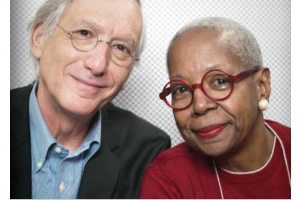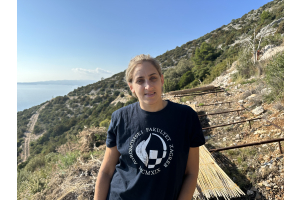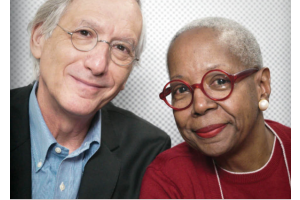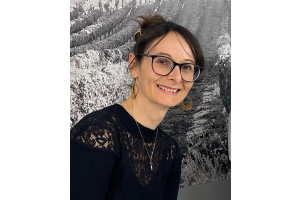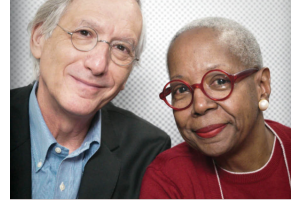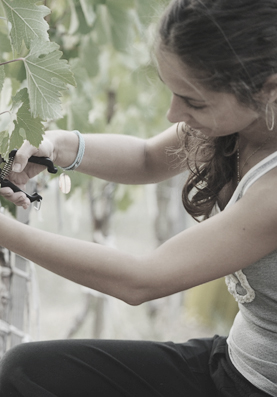
Kayra was formerly Tekel, the state owned tobacco and spirits monopoly founded during the Ottoman period in 1862. In early 2004 it was renamed Mey and privatized by a domestic consortium of businessmen who then sold to Texas Pacific Group (TPG), the private equity firm run by David Bonderman in 2006. Under TPG, Napa wine consultant Daniel O'Donnell was brought on board to improve the quality of the wines, and drinks conglomorate Diagio then purchased it.
Read our feature evaluating the Turkish wine industry.
We talk to Daniel O'Donnell and Kayra winemaker Özge Karmein about the challenges and opportunity facing the Turkish wine industry.
Christopher Barnes: I guess my first question is, Turkish wine, how has it evolved over the years? Wine originated in this region. Grapes originated in this region and yet the industry seems to be fairly new.
Özge Karmein: I think you should start first, and I can add some.
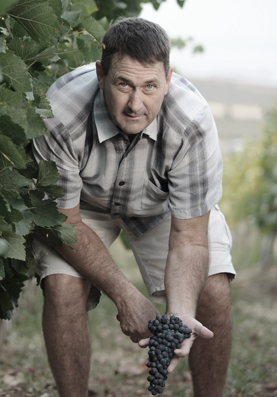
Daniel O'Donnell: I would say yes and no to part of that. Wines did originate around here somewhere, but it was a very different thing than it is now. Now wine is generally considered made from grapes and grapes only. Back then it was part grain, part honey, part grape, part fruit, part whatever. In Turkey, I can only speak to about the last 10 years, where I think it has evolved tremendously with the opening of the economy and the relaxation of the ease of travel for Turkish people to go around the world. More and more people have traveled since the economy has improved and have come back with tastes from a global perspective, which wasn't necessarily the case before.
I think that not necessarily is there a global palate that's coming to Turkey, but I think that those experiences of people being other places are expecting a little higher quality, or a little higher cleanliness out of the Turkish wine scene now then they did before. They had no base point. Right?
In terms of the improvements, I mean, what specific things have happened in the vineyard and in the winery to make better wines in Turkey?
Özge: In previous years, I mean, 10 years before, the grower didn't have that much knowledge about wine, vineyards. After the wineries began to own their own vineyards and they made agreements with the growers, the mentality of the growers changed. I mean, they care about their vineyards a lot. They spend time. They spend money for their grapes. I think after that, the quality of the grapes has improved. The training systems, trellis and all, they pay money for that. The mentality has changed.
Daniel: Keep in mind that in the not too distant past, the grapes were predominantly grown by subsistence farmers. A guy might have half a hectare and 10 goats and 20 sheep and that's his livelihood. Where in modern times or recent times, people have built wineries and have planted vineyards and have brought in their viticulture and have seen the success of those particular plantings and farming techniques. From a financial standpoint, pressure was put on the subsistence farmers to increase the quality of their vineyards. Although culturally it isn't a common practice to come and ask for help, just that economic pressure I think and the quality pressure has allowed us to be in contact with more of the contract growth, and help them increase the quality of their vineyards.
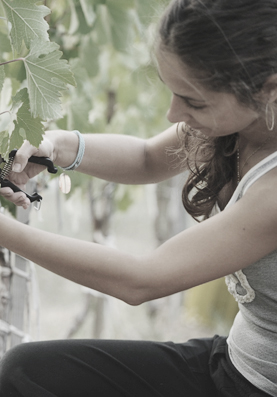
It's critical. It's a critical element in Turkey. As anyone would know, the wine generally is made in the vineyards. Also to reflect on one of your earlier questions, one of the biggest changes in Turkey is the quality of viticulture from what it was even 10 years ago to where it is now.
There are some quite energetic, very bright, enthusiastic young folks that now are getting interested in not only wine, but viticulture, where in the past it was shunned upon. When you take your college entrance exam, for instance in Turkey, the absolute lowest scorers, those are the people that go to agricultural university. There's no value placed on that knowledge. There are a few lucky foreigners that have come and been able to discover some of this great stuff that's here in Turkey and start messing around with it, making wine such as these based on those experiences.
One of the challenges, in terms of working with the growers in different regions, has been getting them to understand how to grow grapes that make quality wine. How do you approach somebody and communicate?
Speaking a little Turkish doesn't hurt. In my case, one of the biggest challenges has been, and no insult in tone, but there is this mentality in Turkey that good enough is good enough. That 80%, well, that's good enough. We got close, that's good enough. Well, that just doesn't cut it in a vineyard. It just doesn't. You go all the way. That's been a real challenge. Getting people trained to see and understand what we want in a vineyard and how that relates to what's in a glass at times can be challenging depending on where you are in the country, because there are places in the country where people won't taste this but they're growing grapes. That's a very difficult thing to communicate, if not impossible thing to communicate, to somebody who can taste a grape and will not taste wine, or never has, and to communicate how we make these improvements. Oftentimes that communication is in the form of cold hard cash.
With the Narince, the grape leaves are used for the ...
Özge: Yes. Sarma Dolma (grape leaves with meat).
Daniel: Nice, pull the leaves off the vine. Yes, that's what he wants.
As somebody who is making wine with those grapes, that's a bit of a challenge.
You can't force that grower when you are doing your agreement. This is for wine, and you shouldn't take you're leaves. If you have that opportunity, you can do it. Of course, the range of the wine is also important. If it is premium, semi-premium segments, the agreement type is ...
In an entry-level wine, it might not be as critical.
Daniel: You know? Once the lower, the basal leaves go through senescence anyway, that tends to happen.
Also the texture of the vineyard and the soil and the weather has a huge impact on how much influence that has. It certainly is a challenge. I mean, we've paid people not to take the leaves, and we go back the next week and they've taken the leaves. As we've talked about before, it's like, "Okay, well, give him the money back," and they're like, "Nope, sorry we don't have the money." There are cultural challenges. One thing that I've learned, especially from the princess here, or Daniel here, sorry, is that I can't impose my cultural values here. I think also that would show through in the wine. I try very hard. It was very difficult the first couple of years, but it's much less difficult now to bite my tongue and try to be absorbed into the culture and do the best that I can from that vantage point instead of imposing my culture here.
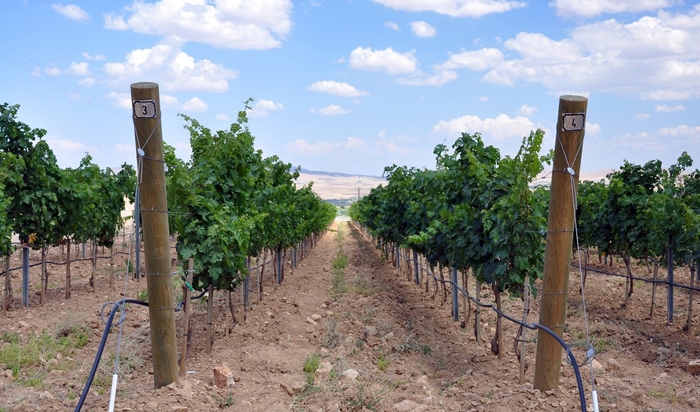
Give us an overview of the different winemaking regions in Turkey.
Özge: Elazığ is Öküzgözü.
Daniel: This is Eastern Turkey.
Özge: Eastern Turkey. Around 800 to 1,100 meters.It has that continental climate.
Daniel: Quite rocky soils. It looks like Mars. Diyabakir and Elazığ in Eastern Turkey are ideal for growing rocks and goats. I mean, it is absolutely ideal for that. The grapes could be quite international where other grapes would be quite stressed there because of the climate. The winter is quite warm. Summer is very shallow. Soils, decomposed granite, some sandstone out there. There's been overlying two foot clay that's in and about.
The Diyabakir is a region slightly south of there, and it's a little bit warmer, has a little higher elevation, and it's the last mountain range before you get down into the plateau and the desert that goes down into Syria and Iraq and whatnot. Boğazkere is an interesting varietal in that you have these enormous shrub vines, enormous, the size of a Volkswagen Beetle, and you might get eight clusters or ten clusters off of it. It turns out that it's necessary for that in order to get the ripeness that we want. In our vineyard, we have vertical shoot position Boğazkere and that's been a real challenge to get some identity out of growing it in a different trellis system. Why don't you talk about Tokat?
Özge: Tokat, again, high altitude.
That's near the Black Sea?
Özge: Yes. Black Sea region, except that ...
Daniel: There's much more rain.It rains throughout the year. It tends to be humid. It's much cooler. Obviously, the Black Sea has a profound effect on the area in and around it. Right? It's alluvial. Drained, really nice glaciated rock plateau, really nice, round boulders, not a lot of topsoil. A nice place for some white varieties, especially Narince. Cappodocia?
Özge: Cappodocia. We had a vineyard last year, and it has that. It has that alluvial soil, sandy soil, and also the red soil. Sandy, volcanic it is also going to bring.
Where, geographically, is that?
Daniel: In the middle of Turkey. I mean, right in the middle. Cappadocia, it's where they have the fairy chimneys. This is the soil. I mean, it's dusty, tufa. When you get up into elevation, in the valley floor this is 50 meters thick, right? As you get up, it's all rooted from up on top of sandstone and chalk.
Özge: It has also the climate, again, the nights are really cooler, but it's continental.
Daniel: Yeah. In September, the nighttime temperatures can be four Celsius, but the daytime can be 30 and nighttime can be four. The diurnal swing is huge.
How is Izmir?
Daniel: Izmir's hot, it doesn't get cold in the winter. It's a great place to grow table grapes. It's a great place to grow entry level wines. They're very vigorous, very, very vigorous viticulture. You could have fairly decent Merlot at 20 tons plus per hectare, but that's the central valley California stuff with lots of water.
Works pretty well, and then from Izmir you go up into the Denizli region. In between Izmir and Denizli is the world's first library, but you go up to about 1100 meters and this is where an awful lot of marble comes from, very shallow soils, granite, mica, there's a bit of calcarea up there, lots of decomposed granite. Sub-soil structures are 45 degrees. This is a seismically active area or historically it's been quite a seismically active area and generally not a bad place.
We do have a few risks there as it relates to springtime flowering, that we'll have hail or frost challenge every year. When Denizli's on, when the weather works out good, it's quite good. Yeah. We like it.
And how is Ankara?
Daniel: Yeah. 500 meters, fertile, continental. Yeah. The wintertime there can be quite harsh.
Özge: Continental.
Daniel: It can be quite harsh. There's another winery that's been there for a long, long time, and the viticulture end of the spectrum, that tends to be a little higher. Level of expertise living and thriving in that area, they've been growing grapes for a while and a little longer there, so it tends to be a little easier place to deal with contract growers there.
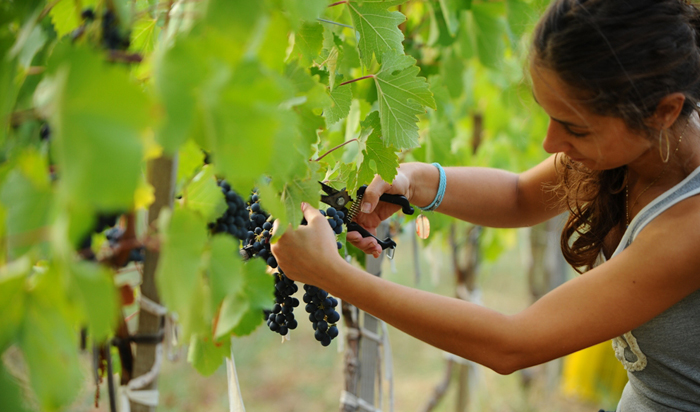
In terms of Turkey on the international wine scene, what do you think it's going to take for people to start talking about Turkey the way that they talk about ...
Daniel: Gravy and mashed potatoes? Sorry. I was thinking about Thanksgiving. Sorry.
I think that it's slowly but surely happening. Wine quality is number one, right? It is. It's just number one, and if you bottle plunk and you try to sell it wherever, that's just not going to work out well for you. That whole Turkishness of good enough is good enough doesn't cut it when you go out into the international market.
That being said, every country makes great wine and every country makes terrible wine. It's everywhere. When I first got into winemaking, it was really easy to find some really terrible wines in California. It's really difficult to do that now, but there are some. This has really advanced viticulture and winemaking areas. Same thing in Australia, certainly in France and in Spain and Italy.
Turkey's slowly getting there. What I think is always curious when I'm out internationally doing tastings, with these wines it's not so much that Turkey has a perception of good or bad. It's Turkey has no perception. It's just not on that map, so getting it on that map, I think, is critical to the success of the industry in Turkey given the governmental pressure. Having great quality at a reasonable price is the only way of doing that, and these things just take time. I mean, how long did it take Chile to do it and how long did it take Australia to do it? You get there. Just be patient. It'll happen. Make good wine. Be proud of what you do. It'll happen.
It's making great wine but also what wine? I mean, does the world need a Merlot from Turkey? What wine do you think is going to be the wine that people in the world talk about when they talk about Turkey?
Well, we talked about that a little before. You have to remember that, for you, Öküzgözü, Narince, Boğazkere, Kalecik Karasi and the indigenous grapes of Turkey are exotic and unusual, but in Turkey, they're not exotic and unusual. They've been here for thousands of years, literally thousands of years. I mean, there are very few places in the world that can even say that, but Cabernet Sauvignon and Syrah, these are exotic for people here in Turkey. Clearly the world doesn't need another shit Merlot. I mean, there's enough of that. Right? There's plenty of that. There's plenty of average Cabernet Sauvignons. There are plenty of average wines out there everywhere, but there are very few Öküzgözüs, there are very few Boğazkeres, very few of those. What we're finding is the sommelier community is really embracing our wines.
Lock, stock and barrel, we get calls all the time from sommeliers around the world and MWs that want to taste the wines or show the wines and whatnot. From Hakkasan to Fat Duck to Robuchon, these guys are loving the wines that we make, and they are interested. To answer your question, I think the success of Turkey will be having a national pride in what it is that they have. These, literally, are treasures, undiscovered treasures in the wine world, and for Turkey as a country to embrace that, I think that's the way Turkey will end up being known in a significant way.
Talk about the native varietals a bit. What are the ones that you think are really going to be the breakout wines and describe them?
Özge: Öküzgözü, Kalecik Karasi is the red side, and Narince, I think, the white. Now they are really popular in foreign countries. In the premium restaurants, they really love the style of the Narince, the different grapes, our indigenous grapes, of course. You can do really fresh acidity with the fruity Narince or you can use it with a blend. You can do barrel aging for that one. You can play with the different styles of Narince. I'm sure that you tasted lots of different examples of Narince, and Öküzgözü in just one region, I mean, in eastern Turkey. You have many different wines that you can taste.
Stylistically different. Of course, the grapes are the same but the style is different. Kalecik Karasi is the same. It's like white Kalecik so you can easily do a really good rosé, and you can make a really good red wine also.
Daniel: Yeah. Some of the grapes don't take to barrel aging at all. That's a winemaking decision, but I think one thing that I've found in my short tenure here is that the architecture and the spirit of these wines are very different than things that I have tasted all around the world. You know how as people are tasting wines they tend to want to associate one wine with another? You brought up Tanat before. Some of the wines and the grapes that we have, I mean, I've tasted thousands, tens of thousands, hundreds of thousands of wines in my career, and I can't pigeonhole these that way.
I think that is a treasure trove. I mean, this is kid in the candy shop winemaking. This is great stuff, to be able to discover some of these varietals and what their architecture is. They're really fantastic, so as far as red wine goes, there's light and easy drinking, fruity, chilled reds of Kalecik Karasi from Anka. There's Öküzgözü, which means bulls eye, from Malaysia in eastern Turkey. There's, what's called Bogaskere, which means "burns your throat" or "scratches your throat" which is a dense, tannic monster. It's white and it's like the Tasmanian devil from the cartoons years ago. It's wily and unpredictable and fascinating.
Then, on the white side, having Narince and Izmir, they're good, solid wines. If you're interested in Sauvignon Blanc as a varietal, you can taste Sauvignon Blancs from the Loire and from New Zealand and South Africa. There are certainly differences within the regions and then the winemaking styles of the vineyards themselves, but they all have a similar characteristic where some of the grapes that we're messing around with here have undefined characteristics. I think that's kind of the joy of discovery for Turkey, Turkish wines and the Turkish wine industry.
How did Kayra start? What's the story behind Kayra?
Daniel: Kayra is the wineries of a company called Mey Içki, içki means drink in Turkish. Mey drink company. It was called Tekel which is Turkish for monopoly, and previous to Mey, the wine, Rakı, which is the national drink of Turkey, and gin, beer, all of that stuff was owned by the government. A group of folks got together and purchased it from the government. Isn't that funny how that was right around the time the current government came into power? Huh.
They purchased it and privatized it and set it up to become a more quality-oriented company. They certainly saw the area for growth in the sector, and by taking it away from the government and making it profitable and more quality-minded 10 years later gets us to where we are today.
I can clearly remember when I first came here, one of the first things I did was throw away 16 million liters of wine. That didn't make them very happy, but it was gasoline. If you ever wanted to give a lecture on what are all the potential wine faults, we would have found them in those wineries. Remember that?
Özge: Yeah. Of course.
Daniel: Just terrible. We were over-employed. We had seven wineries. We had managers and managers and managers of the guy pushing a broom, the classic government agency thing, social security system as the employment scheme. You know the mayor and the mayor's brother and the mayor's cousin and everybody who was employed there. We streamlined it, right-sized it and started looking at the quality of things, and then came along a company called Texas Pacific Group, a private equity company, and they bought it. That's when they asked me to come here and have a look-see. At that point, I think we were losing about 12 million a year and had a decision to make with with TPG, on if there was potential to break even or make a profit within the wineries. I said, "Oh, there's about a 50/50 chance."
In the course of four or five years, we got up to breaking even. Now we're a profitable company that's making industry standard wine. I think it started in the '30s actually, Tekel.
When Atatürk was around, it started in the '30s, right? He's the one who developed the industry. Well, it depends on which Sultan was there. During the course of the Ottoman Empire, some of the ethics with wine was fair trade, and sometimes it was absolutely forbidden, but in the last one it was forbidden and Atatürk revived it. I think Tekel goes back to there, and that brings us here today.
Then Diageo purchased it at some point?
Daniel: Two years ago? Something like that? A year and a half, two years ago?
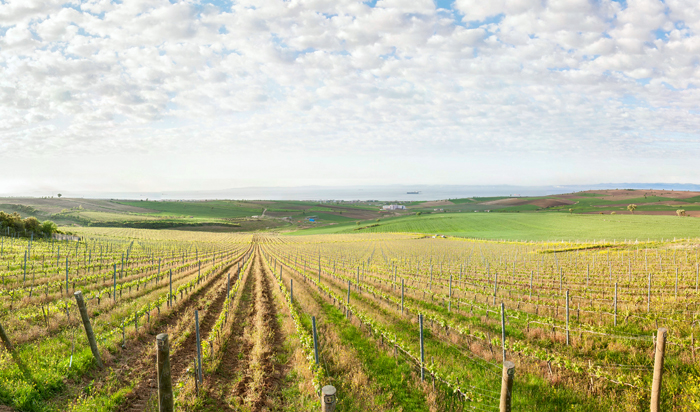
Has the company changed since Diagio took over?
Yeah. I think you'd have to ask the CEO that. As far as us, the farmers, Özge and Daniel, are concerned, we still wake up in the morning. We still walk in the vineyards, and we still blend the wine and we still make the wine. Nothing has changed for us.
The political situation in Turkey, how has that impacted the way that the wine industry operates?
It hasn't affected the wine production at all, grape growing or wine production. It is rather restrictive in that it seems almost every year taxes are doubled and then a couple of years ago they decided that any form of marketing whatsoever is illegal. There's no marketing. There's no direct marketing. There are no websites. You can't order anything off of the internet. You can't view anything off of the internet. You can't sponsor a sports team. You can't have your name in the window of a store, in the window of a restaurant.
The challenge of normal marketing has changed quite a bit. Say if you were to develop a new wine or a new wine program that you wanted to promote, you can't, so growth or introduction of things has to happen organically through the retailer or through the chain, the grocery store chain. That's a huge impact, in one way positive because I think that, to refer to one of your questions before, that's going to push Turkey a little further to pay attention to the international scene. I think that given the only opportunity for growth for some of the wineries here, especially the new wineries I feel terribly, terribly about.
There are guys that have invested several years and a bunch of money to plant some vineyards and build a winery just a couple of years ago. All of a sudden they open their doors, and they can't market any wine. I mean, I really feel terrible for those guys. It's going to be a struggle, but it will force the industry in Turkey to look outside of Turkey which I think is a good thing.
If the government changes is it likely that these problems will go away or is something that's there for good?
There's the potential. There's certainly the potential for change. The thing that I think is very funny about it, and we all know what these things are, there are a few things in life where it doesn't matter what politics says, they're just not going to change. Right? We know what these things are. Gambling, prostitution and alcohol. They're everywhere. I mean, it's part of human history, all three of those things, and I can't think of another case that any government has been successful in wiping any of these things out. Those things just tend to go underground, and then they become dangerous. In a way, I think it's very irresponsible of the government of Turkey to not support a healthy, sanitary industry, when every year people here die from methanol being produced and sold in people's backyards.
I think the government should oversee the industry in a safe and responsible way, and I think the wineries should operate in a safe and responsible way. I think that would lead to the overall health and enjoyment at an awful lot of Turkish dinner tables.
The reason people are dying from methanol is because there's a black market in wine for people producing wine and not wanting to get taxed for it. Is that correct?
That's not correct. It's close, though. The people who are dying, it's not necessarily coming from wine. That's just terrible wine that they're drinking on the black market, but it comes from the hard alcohol side, whether it's black market vodka or black market Rakı or whatever it is. It is the distilled spirits that people tend to be dying from, but it is estimated that the black market is equal in volume to the legal, white market.
The fact that they've raised all of these taxes, they could be making more money if the taxes were lower but, in fact, the tax base was bigger.
They could make more money, and it'd be more safe for the general population.
One of the things that somebody not from Turkey or not familiar with this industry, I think, will first ask, and probably every time you go abroad asks you, is you're making wine in a country where the predominant religion is Islam. How is that dynamic?
I mean, the only way I can really address that is if you're in the, say, US or in Europe or basically Christian countries, this is a constitutionally secular country, Turkey, as is the United States. The predominant religion, I guess, in the US is Christianity, and in Christianity, I don't think you're supposed to have sex before you're married. I think it's a non-issue. I mean, I think people's religions are people's religions. There are extreme Christians and there are extreme Muslims and there are even extreme, of all things, there's extreme Buddhism; those guys that set themselves on fire. Then there's moderate. I don't think it's that big of an issue.
It also depends regionally, right, in Turkey where you are. I think that there are regions of Turkey that are a little more pious than others, then there are, as you learned visiting Izmir the other day, there are areas of the country that are less pious.
I mean, that's one of those treasures, so while you're doing all of this business, you get to do stuff like this. You discover these things, and from being a San Marino boy, that's not something that happens every day in San Marino. I mean, you have all these different grades of similarity. Of course, there are thousand dollar bottles of wine and there are two hundred dollar bottles of wine and there are twenty dollar bottles of wine. The texture is similar, right? The farming is similar, where it is completely abstract here.
This is a Rothko. It's just everywhere. The whole country's a study in motion, and the wine industry is also a study in motion. It's great, and it's fun to be part of that. It's fun to hand it over to very, very capable people that are doing a much better job than I ever could have.
Other Grape Collective content on Turkish wine.
Our feature on the Turkish wine industry.
Interview with Murat Güner of Sevilen.
Interview with Ennio Gugliotta and Tina Lino of Vinkara wines.
Interview with Isik Gulcubuk of Kastro Tireli in Izmir.





